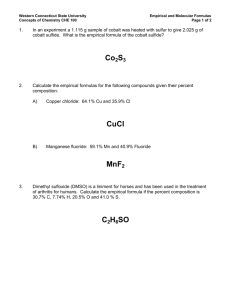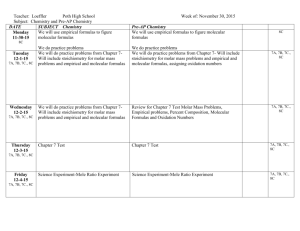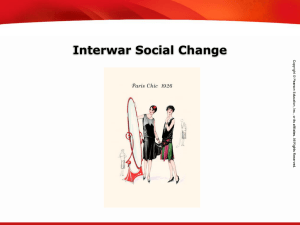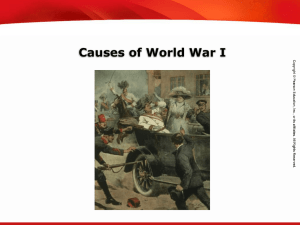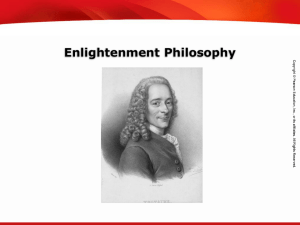spoils system
advertisement
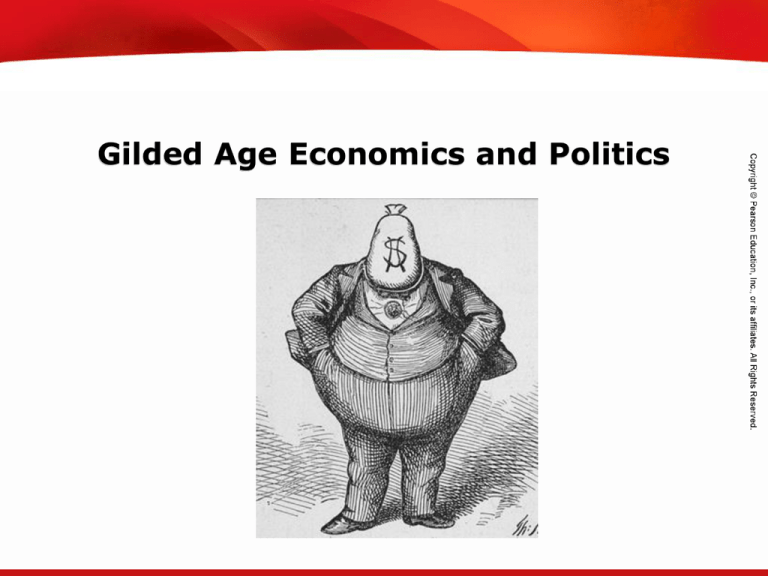
TEKS 8C: Calculate percent composition and empirical and molecular formulas. Gilded Age Economics and Politics TEKS 8C: Calculate percent composition and empirical and molecular formulas. Objectives • Analyze how corruption affected national politics in the 1870s and 1880s. • Discuss civil service reform during the 1870s and 1880s. • Assess the importance of economic issues in the politics of the Gilded Age. TEKS 8C: Calculate percent composition and empirical and molecular formulas. Terms and People • spoils system – a system in which politicians awarded government jobs to loyal party workers with little regard for their qualifications • civil service – government departments and their nonelected employees • Pendleton Civil Service Act – law that created a civil service system for the federal government in an attempt to hire employees on a merit system rather than on a spoils system • gold standard – using gold as the basis of the nation’s currency TEKS 8C: Calculate percent composition and empirical and molecular formulas. Why did the political structure change during the Gilded Age? Congress passed few laws between 1877 and 1900. It was an era marked by inaction and political corruption. The Gilded Age raised questions about whether or not democracy could succeed in an era dominated by powerful industrial corporations and men of great wealth. TEKS 8C: Calculate percent composition and empirical and molecular formulas. Between 1877 and 1897, party loyalties were evenly divided. • Neither political party achieved control of both the White House and Congress for more than two years in a row. • Presidents during the Gilded Age were elected only by slim margins. • This made it difficult to pass new laws. TEKS 8C: Calculate percent composition and empirical and molecular formulas. Corruption plagued national politics as many officials accepted bribes. Cartoonists such as Thomas Nast worked to expose corruption. Nast cartoon of “Boss” Tweed TEKS 8C: Calculate percent composition and empirical and molecular formulas. The spoils system was the glue of the political parties. The spoils system, in which party supporters received government jobs regardless of their qualifications, shifted power to a few. This system made the political parties extremely powerful. TEKS 8C: Calculate percent composition and empirical and molecular formulas. A movement arose to promote civil service reform. Ending the spoils system was difficult. Change finally happened, in part, because President James Garfield was assassinated by a man who believed the Republican Party owed him a job. TEKS 8C: Calculate percent composition and empirical and molecular formulas. Chester A. Arthur became President and supported civil service reform. In 1883, he signed into law the Pendleton Civil Service Act, which established a merit-based system for government employment. TEKS 8C: Calculate percent composition and empirical and molecular formulas. Economic debates focused on tariffs and monetary policy during the Gilded Age. Republicans favored tariffs on imported goods. Tariffs supported American industry, but Democrats claimed that they increased consumer prices and made it harder for farmers to sell their products abroad. Monetary policy disputes centered on whether or not to maintain the gold standard, where gold is the sole basis of the nation’s currency. TEKS 8C: Calculate percent composition and empirical and molecular formulas. The Coinage Act of 1873 reversed the policy of having the government issue both gold and silver coins. Some people wanted to use only gold as money. Some wanted to use both gold and silver. Bankers were worried silver would impact trade and undermine the economy. Farmers hoped it would create inflation and raise their income.



